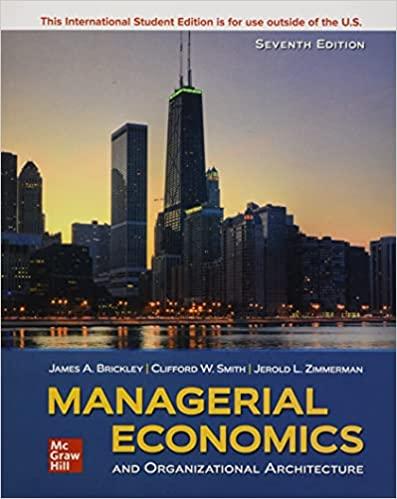101. John owns a home construction company. His cost for building a new house is $300,000. Sue...
Question:
10–1. John owns a home construction company. His cost for building a new house is $300,000.
Sue is a potential home buyer who would be willing to pay John up to $400,000 to construct a new house if she knew for certain that John would not cheat her (e.g., using below standard, less expensive building materials in constructing the house).
a. Suppose that Sue does not buy the house because she decides there is no way to prevent John from cheating her. What are the total agency costs? Divide these costs into the residual loss and out-of-pocket costs.
b. Suppose that Sue hires an engineer for a cost of $20,000 to monitor the construction process. Sue expects that the engineer’s work will significantly decrease the likelihood that John will cheat on the contract. There, however, is still some chance that John will cheat. Because of this possibility, Sue values the house at $390,000 rather than
$400,000. Given her $20,000 expenditure for the engineer, her maximum willingness to pay is $370,000. Suppose that Sue pays John $350,000 to construct the house.
What are the total gains from trade and how are they split? What are the total agency costs?
22 Divide these costs into the residual loss and out-of-pocket costs.
c. Suppose that an additional engineer could be hired at a cost of $20,000 that would reduce the probability of John’s cheating to zero. Would it be in Sue and John’s joint interest to hire the engineer? Explain.
d. Why should Sue pay for the engineer? Isn’t it John’s responsibility to assure that he will comply with the contract?
Step by Step Answer:

Managerial Economics And Organizational Architecture
ISBN: 9781260571219
7th International Edition
Authors: Clifford W. Smith, Jerold Zimmerman, James Brickley






